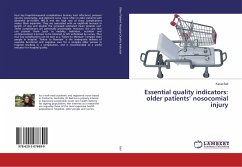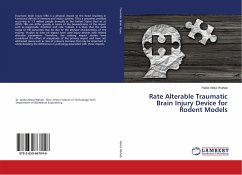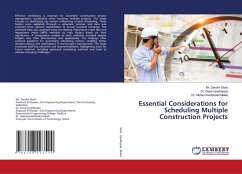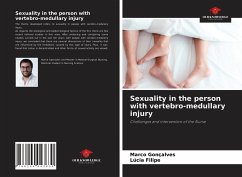
Essential quality indicators: older patients' nosocomial injury
Versandkostenfrei!
Versandfertig in 6-10 Tagen
56,99 €
inkl. MwSt.

PAYBACK Punkte
28 °P sammeln!
Four key hospital-acquired complications (urinary tract infections; pressure injuries; pneumonia, and delirium) occur more often in older patients with dementia (p0.0001, RR2.5) and the high rate of these complications makes them expensive. They are associated with an eightfold increase in length of stay and double the increased estimated mean episode cost. These complications are potentially preventable. However, the care that can prevent them (such as mobility, hydration, nutrition and communication) is known to be rationed or left unfinished by nurses. Thus four key complications can be see...
Four key hospital-acquired complications (urinary tract infections; pressure injuries; pneumonia, and delirium) occur more often in older patients with dementia (p0.0001, RR2.5) and the high rate of these complications makes them expensive. They are associated with an eightfold increase in length of stay and double the increased estimated mean episode cost. These complications are potentially preventable. However, the care that can prevent them (such as mobility, hydration, nutrition and communication) is known to be rationed or left unfinished by nurses. Thus four key complications can be seen as a 'Failure to Maintain' complex older people in hospital. 'Failure to Maintain' is the inadequate delivery of essential functional and cognitive care for a complex older person in hospital resulting in a complication, and is recommended as a useful indicator for hospital quality.












